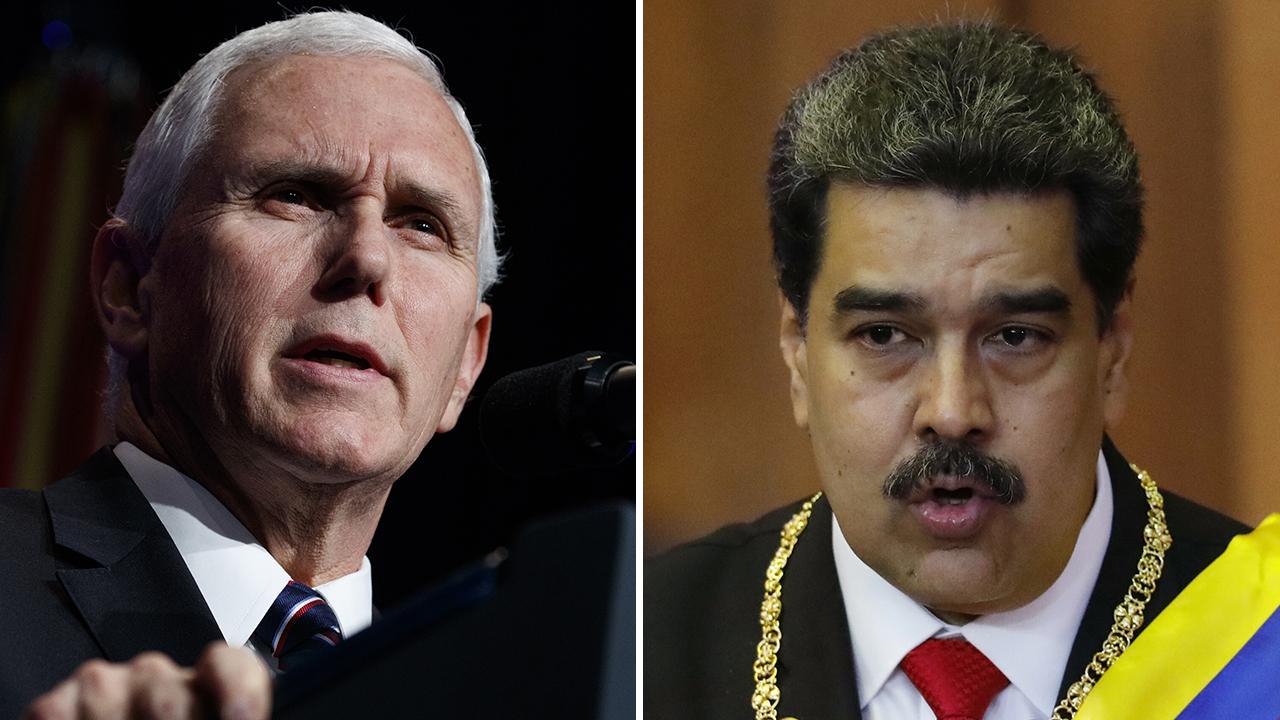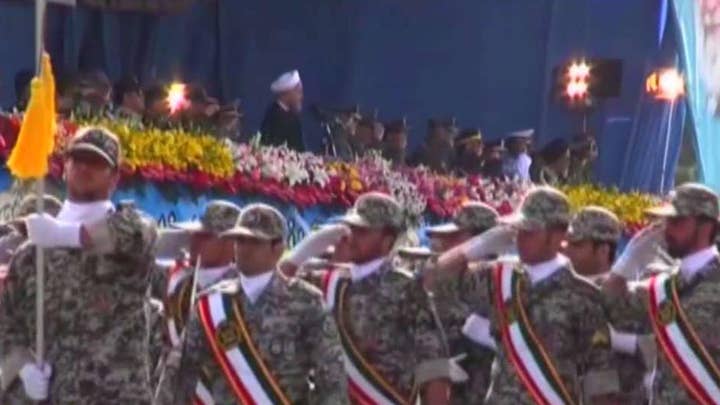Venezuelan President Nicolas Maduro on Wednesday said he's cutting off relations with the U.S. and giving American diplomats 72 hours to exit the country.
The socialist leader ordered a review of Venezuela's relationship with the U.S. hours after the Trump administration officially recognized opposition leader Juan Guaido as the nation's interim president.
WHO IS JUAN GUAIDO, US-RECOGNIZED INTERIM PRESIDENT OF VENEZUELA?
A day earlier, Vice President Mike Pence sent a recorded video to Venezuelans referring to Maduro as "a dictator with no legitimate claim to power."
"He has never won the presidency in a free and fair election, and has maintained his grip on power by imprisoning anyone who dares to oppose him," Pence said in the video.
Hours after the video was sent on Tuesday, Maduro spoke on state television, saying that Pence had brought about a 200-year low in relations between the two countries by authorizing a coup.
On Wednesday Trump recognized 35-year-old Guaido, head of the opposition-controlled congress, as the country's interim president.
"The citizens of Venezuela have suffered for too long at the hands of the illegitimate Maduro regime," Trump tweeted after Guaido spoke to his supporters, and tens of thousands of protesters hit the streets in widespread protest against Maduro.
Secretary of State Mike Pompeo said later Wednesday that the U.S. stands with Guaido, and "does not consider former president Nicolas Maduro to have the legal authority to break diplomatic relations with the United States or to declare our diplomats persona non grata."
VENEZUELA'S CONGRESS NAMES NEW LEADER, VOWS TO BATTLE MADURO
Guaido's supporters, shouting phrases including "Get out, Maduro," say they're fed up with spiraling inflation, a shortage of basic goods and a migration crisis dividing families.
The protest is considered a crucial test for the reinvigorated opposition as it seeks to send a forceful message that Maduro no longer has the people's backing and appeals to the military and the poor to shift loyalties that until recently looked solidly behind the president. The protests were called to coincide with a historic date for Venezuelans — the anniversary of the 1958 coup that overthrew military dictator Marcos Perez Jimenez.
Maduro, who started his second term as president on Jan. 11 after disputed elections, is facing increasing hostility from the international community. He has sought to shore up support from the armed forces by doling out key posts to top generals, including one as the head of the oil monopoly that is the source of virtually all of Venezuela's export earnings.
He has also been acting as commander in chief, appearing last week at a military command meeting wearing camouflage fatigues and receiving the blessing of the defense minister, Gen. Vladimir Padrino Lopez.
CLICK HERE TO GET THE FOX NEWS APP
Maduro has accused the opposition of inciting violence with the aim of provoking a bloodbath. Top socialist leaders have threatened to unleash menacing motorcycle gangs of pro-government die-hards known as "colectivos."
"I demand the full rigor of the law against the fascists," Maduro said Tuesday night, blaming "terrorists" allegedly linked to Guaido's Popular Will party for a fire at a cultural center named for a pro-government lawmaker murdered in 2014.
Fox News' Nicholas Kalman and Lucia Suarez Sang and The Associated Press contributed to this report.



